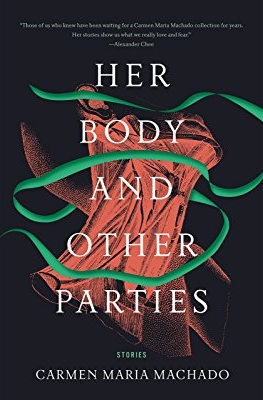Student Picks: Offill, Rushdie
Jemiscoe Chambers-Black-- Have you ever had something remind you of your toddler years and make you not want to share? That’s what Jenny Offill’s Dept. of Speculation did to me. It’s the book that I clutch to my chest and scream, “Mine.” However, it’s so beautifully written, I have to share.
Dept. of Speculation’s structure is written in short paragraphs of randomness that become gorgeous prose. The novel follows a writer who vows never to get married because she is too busy becoming an “Art Monster.” But she ends up falling in love, getting married, and eventually having a baby, and in her confliction and honesty, I’m moved. There are many delicious moments in this book that spill off the page when the inner thoughts of this career woman turned stay-at-home-mom pour out:
“What did you today, you’d say when you got home from work, and I’d try my best to craft an anecdote for you out of nothing.”
Eventually, her husband has an affair, and the reader is taken on a journey filled with love, family, sacrifice, and eventually forgiveness. So, while I’ve shared this gem, know that no one can borrow my copy. I really recommend this book, but get your own.
Kirah Brouillette-- On a whim, I re-read Salman Rushdie’s infamous novel The Satanic Verses, the magically real story of two morally bankrupt Bollywood actors, Gibreel and Saladin, who die in a terrorist plot and are later reborn as an angel and Satan. With an embedded storyline around the prophet Mohammed that offended some Muslims enough that violent protests followed and the author himself was put under a fatwa by the Ayahtollah Komeni in 1989, it can be a tall order to finish.
What gets you by though, is the purity of Rushdie’s prose; the way he uses cadence and free punctuation to draw you into this foggily familiar world – a world where realism meets the magic of literary allusion, all bound by rising emotion shared between all characters, in both worlds at once.
“Is there a Devil. After that the glass – baprebap! – began to shake ... slowslow at first, then faster-faster ... until it jumped ... fell down on its side and ... into a thousand ... pieces, smashed. Believe, don’t believe ... but thenandthere I learned my lesson: don’t meddle, Mhatre, in what you do not comprehend.”























